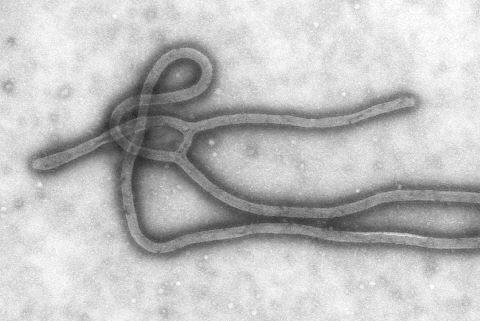A Scottish nurse though to have been cured of Ebola in January was checked into the Royal Free hospital in London and reported as critically ill on Tuesday. This image is of a transmission electron micrograph (TEM) looking at the RNA filovirus that causes Ebola hemorrhagic fever. Photo courtesy of Cynthia Goldsmith/CDC
LONDON, Oct. 14 (UPI) -- A Scottish nurse who contracted Ebola while volunteering at a treatment center in West Africa last year is critically ill with a relapse of the deadly infection she had survived nine months ago.
Pauline Cafferkey
Cafferkey, 39, volunteered to work with the Save the Children effort at an Ebola treatment center in Sierra Leone last year. She spent four weeks there and upon returning home on Dec. 28 began to feel ill. After a visit to a local hospital in Glasgow, Scotland, she was transferred to London's Royal Free hospital by an RAF plane on Dec. 30.
She was then diagnosed with Ebola and determined to be in critical condition on Jan. 3. Intensive medical support and Cafferkey's immune system fought off the disease and Cafferkey was discharged on Jan. 24.
However, she was flown back to the Royal Free hospital last week after feeling ill and was diagnosed with a recurrence of the Ebola virus.
The hospital said Wednesday her condition was critical.
Cafferkey may be among the first to experience a recurrence of the virus, The Guardian reported.
Jonathan Ball, a molecular virology professor at the University of Nottingham, told The Guardian that Cafferkey's case is "frankly staggering" and that the nurse did not exhibit behaviors that would be associated "with a transmission risk to others."
Dr. Derek Gatherer from Lancaster University told Sky News that Ebola survivors usually generate antibodies that eradicate the virus in bodily fluids, but that areas of the body such as the central nervous system, where the immune system is not as active, may harbor small quantities of the virus.
A total of 58 people believed to have had close contact with Cafferkey are being monitored for symptoms of Ebola as precautionary measure. Twenty-five of them were administered an experimental vaccination, though the likelihood of Cafferkey being contagious is low.
The virus has killed 11,312 people in West Africa -- 11,000 of them in Sierra Leone. It has also affected the United States and Spain.
Sky News cites a Save the Children report that said Cafferkey was likely infected when she chose to wear a visor to protect her face instead of a pair of goggles that were tough to fit.
.















